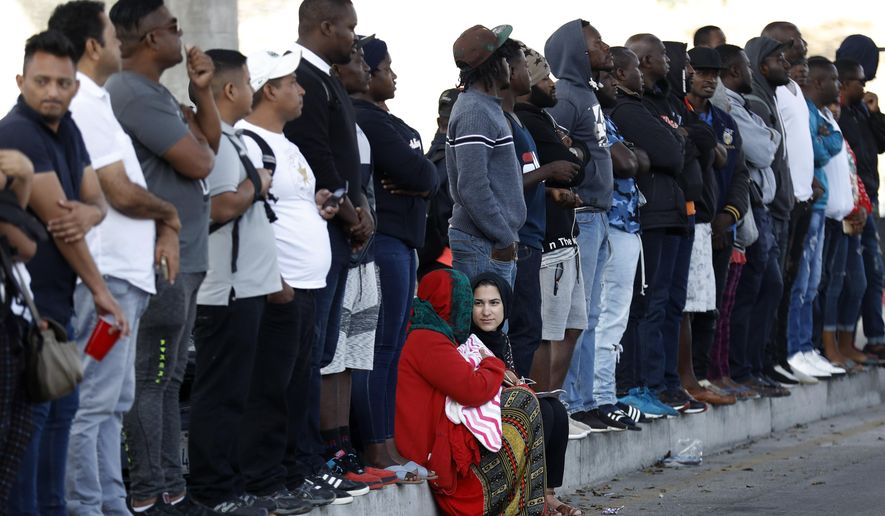Immigrants have seen a “dramatic” drop in their use of welfare programs over the first three years of the Trump administration, according to a new report Tuesday that said the president’s crackdown on migrants who become dependent on social services is having an effect.
The Migration Policy Institute looked at Census Bureau data from 2016 to 2019 and found that participation in food stamps and welfare payments fell 36% among noncitizens. Citizen participation also declined, but only by about half that rate.
MPI researchers traced the drop directly to the new “public charge” rule, issued by Homeland Security, which warned immigrants their use of welfare programs could be a negative factor if they eventually try to upgrade their legal status.
The public charge rule wasn’t finalized until early this year, but MPI said immigrants were aware it was coming as far back as 2017, and have changed their actions accordingly.
“The Trump administration’s intent to revise long-standing public-charge criteria was featured widely in the media and public conversations beginning in early 2017, through the lengthy rulemaking process in 2018 and 2019, and during the extensive legal challenges that followed,” MPI concluded.
“The regulation’s creation also occurred against a backdrop of strong rhetoric about the bad effects of immigration, more visible immigration enforcement, and other policy changes that have generated fear in immigrant communities,” the group added.
Immigrant-rights activists had predicted that a drop in welfare use would occur, and they have fought in court to block the policy.
Judges have issued a complex web of rulings, with lower courts ruling the Trump policy violated the law, and appeals courts stepping in to limit those injunctions.
U.S. policy has long been that immigrants should be self-sustaining, with that notion enshrined in law as far back as the late 1800s, when the law banned any immigrant “unable to take care of himself or herself without becoming a public charge.”
The records from Ellis Island and other immigration reports in the early 1900s show the likelihood of becoming a pauper was one of the reasons migrants were excluded or deported.
In 1996 Congress updated the law, but the Clinton administration issued narrow regulations limiting the programs that counted against immigrants to only a few cash-benefit programs.
The Trump administration expanded that list to non-cash programs such as food stamps, Medicaid and housing assistance.
Immigrants aren’t banned from using them, but under the new rules anyone who uses those benefits for at least 12 months out of a three-year period would be flagged and would have it count against them if they apply for lawful permanent residency.
The rules don’t apply to refugees, asylum-seekers and those in the U.S. on special victim visas.
When Homeland Security finalized the policy in February, it predicted a significant change in immigrants’ behavior.
“The goal is to make sure that people who are granted long-term status, legal permanent residence status, can stand on their own two feet. And get back to that American tradition that has been in law for over 140 years,” acting Deputy Secretary Ken Cuccinelli said at the time.
But MPI said confusion and fear about the rule may be counterproductive, particularly amid the coronavirus outbreak.
“Given the severe economic dislocation accompanying the COVID-19 pandemic, it is particularly essential that the federal government disseminates accurate information about who is and is not affected by the public-charge rule,” wrote Randy Capps, Michael Fix and Jeanne Batalova, the researchers. “These public health-related concerns only reinforce the need to develop a communications plan about the limited scope of the rule in order to allay fears and reduce chilling effects.”
• Stephen Dinan can be reached at sdinan@washingtontimes.com.




Please read our comment policy before commenting.